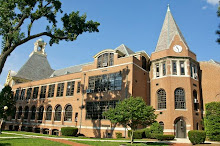No wonder it’s so easy for people like Governor Christie to dangle the magic of charter schools in front of the state. Never mind the fact that overall, charter schools have been proven in study after study to achieve no better results than public schools. Let’s just never mind that for today. Instead, let’s focus on what’s really going on in the oh-so-trendy, brave new world of “education reform.”
I was referred to an interesting article, titled Waiting for SuperFraud, by Michael T. Martin. In it, Mr. Martin made some good points that I haven’t really been considering. He wrote,
Public schools have to fail. There is no alternative. So give up trying to argue otherwise with facts and logic.Mr. Martin goes on to tell about a 1999 Merrill Lynch in-depth report titled “The Book of Knowledge, Investing in the Growing Education and Training Industry.” The report notes: “The K-12 market is the largest segment of the education industry with approximately $360 billion spent annually or over $6,500 per year per child. Despite the size, the K-12 market is the most problematic to invest in today.”
The mockumentary Waiting For Superman made this clear. Funded by millionaires, the movie told the story of some privatized schools in Harlem portrayed as saviors of children otherwise condemned to public schools. Privatized schools mostly funded by hedge fund millionaires on Wall Street. They spent two million dollars to promote the film nationally. Another major film titled “The Lottery” told a similar tale: children in Harlem desperate to escape public schools. Funded by more millionaires.
In other words, there’s a $360 billion (today more like $700 billion) market – full of desperate taxpayers and scared parents – up for grabs, and private enterprise is being invited in to take over – as an investment strategy, not for educational outcomes.
Big business doesn’t make decisions out of the goodness of its heart, or for the betterment of society, but rather with an eye on huge profits and a captive audience. It’s just something to think about. “Follow the money” as they said in my favorite movie. And evaluate potential "supermen" accordingly.






3 comments:
Poppy cock. Mr. Martin's bias against business is self evident in his understanding of business, "Big business doesn’t make decisions out of the goodness of its heart, or for the betterment of society, but rather with an eye on huge profits and a captive audience."
What he refuses to acknowledge is that unless a business provides a good or service that satisfies the customer, it will cease to exist. Unless, of course it is subsidized or run by a government.
@January 1, 2011 11:19 PM -- I'm sorry for the delay in posting your comment. It was not intentional.
Actually, Anonymous, what some people (maybe you) refuse to acknowledge is that education is not and simply cannot be evaluated on such a narrow P&L basis like a "business." A business has the ability to control far more of its operations. They can get better "materials" from another source. They can discontinue "unprofitable" product lines. They can shift focus from one part of the company to another, based on a pre-determined marketing calendar. Schools are obligated to educate EVERY student that shows up on their doors -- they can't keep the "defective" or hard-to-educate ones out so as to protect their bottom line. They can't decide to focus on 8th grade and say "you know, 4th grade is costing us too much money right now, let's stop doing 4th grade for a year and re-tool."
My posting of Mr.Martin's comments was to just remind people to exercise healthy skepticism at the big piles of money being "promised" (not a lot of checks have been written yet) by corporations who are portrayed as "Supermen."
Post a Comment